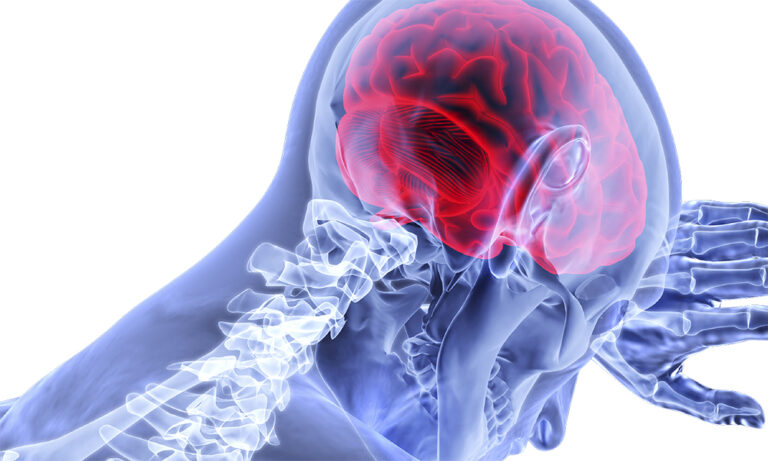
Mental clarity is often attributed to factors like diet, exercise, and sleep. However, a lesser-known yet crucial player in cognitive function is the lymphatic system. This intricate network of vessels and nodes is responsible for detoxification, immune defense, and fluid balance. But what many don’t realize is that the lymphatic system also plays a pivotal role in brain health and mental clarity.
When lymphatic flow is sluggish, the body struggles to remove toxins, leading to inflammation and cognitive fog. This article explores the fascinating connection between lymphatic circulation and mental performance, shedding light on how optimizing lymphatic function can lead to sharper focus, improved memory, and overall mental resilience.
What Is the Lymphatic System?
The lymphatic system is a vital yet often overlooked component of the circulatory and immune systems. Unlike the blood circulatory system, which has the heart as a pump, the lymphatic system relies on muscle movement and breathing to circulate lymph fluid. This fluid carries waste, toxins, and immune cells, acting as the body’s primary detoxification highway.
For decades, scientists believed the brain lacked a lymphatic drainage system. However, the discovery of the glymphatic system—a specialized waste clearance pathway in the brain—has revolutionized our understanding of brain detoxification. This network works primarily during deep sleep, flushing out metabolic waste, excess proteins, and inflammatory byproducts that could otherwise impair cognitive function.
Signs of Poor Lymphatic Flow and Its Impact on the Brain
A well-functioning lymphatic system is essential for cognitive sharpness and overall brain health. When lymphatic circulation becomes sluggish, waste products and toxins accumulate, leading to inflammation and impaired neurological function. This buildup can manifest in various cognitive and physical symptoms, affecting focus, memory, mood, and energy levels. Recognizing the early signs of poor lymphatic flow can help individuals take proactive steps to restore balance and enhance mental clarity.
- Brain Fog and Cognitive Sluggishness. One of the earliest signs of lymphatic congestion is mental fog—a persistent feeling of haziness, forgetfulness, and difficulty concentrating. When the body’s detox pathways are impaired, metabolic waste accumulates, leading to systemic inflammation that affects neural processing speed.
- Chronic Fatigue and Low Energy. A stagnant lymphatic system can contribute to chronic fatigue, as the body expends more energy trying to clear out toxins. This can lead to a cycle where low energy levels further inhibit movement, exacerbating lymphatic stagnation.
- Headaches and Poor Sleep Quality. The glymphatic system is most active during deep, restorative sleep. If lymphatic flow is compromised, waste accumulates in the brain, potentially leading to frequent headaches and disrupted sleep patterns, which further impact mental clarity and cognitive resilience.
- Increased Anxiety and Mood Imbalances. Emerging research suggests that impaired lymphatic drainage contributes to neuroinflammation, which has been linked to anxiety and mood disorders. When toxins are not efficiently removed from the brain, neurotransmitter function can be affected, leading to increased stress, irritability, and emotional instability.

How to Improve Lymphatic Flow for Better Mental Clarity
A well-functioning lymphatic system is essential for removing toxins and metabolic waste that can cloud cognitive function. When lymphatic flow is optimized, the body efficiently clears out inflammatory byproducts, promoting clearer thinking, improved memory, and overall mental resilience. Fortunately, there are various natural strategies to stimulate lymphatic movement and enhance brain health. Below are some of the most effective methods to boost lymphatic circulation for better mental clarity.
- Hydration. Since the lymphatic system is primarily composed of fluid, staying well-hydrated is non-negotiable for optimal function. Drinking filtered water with electrolytes can help maintain fluid balance and support efficient toxin removal.
- Movement and Exercise. Unlike the circulatory system, the lymphatic system does not have a central pump. Physical movement is essential for propelling lymph fluid through the body. Activities such as rebounding (mini trampoline exercise), yoga and stretching, brisk walking or light jogging, and lymphatic drainage massage. These activities stimulate lymph flow, enhance circulation, and reduce stagnation that contributes to cognitive fog.
- Deep Breathing Techniques. The diaphragm acts as a natural lymphatic pump, assisting in the movement of lymph fluid. Deep breathing exercises, such as diaphragmatic breathing or alternate nostril breathing, enhance oxygenation and support detoxification.
- Dry Brushing and Lymphatic Massage. Dry brushing involves using a natural bristle brush to stimulate lymphatic flow. When combined with lymphatic drainage massage, it encourages the removal of toxins while promoting relaxation—both of which contribute to mental clarity.
- Prioritizing Sleep for Brain Detoxification. Since the glymphatic system is most active during deep sleep, ensuring quality rest is critical. Strategies to optimize sleep include:
- Sleeping in complete darkness to support melatonin production
- Avoiding blue light exposure before bed
- Maintaining a cool, quiet sleep environment
- Practicing relaxation techniques like meditation or magnesium supplementation
- Taking anti-Inflammatory nutrition. A diet rich in antioxidants, fiber, and healthy fats supports both lymphatic and brain function. Key foods include leafy greens (kale, spinach, arugula), berries rich in polyphenols, omega-3 sources like salmon, flaxseeds, and walnuts, and herbs like ginger and turmeric that support circulation and detoxification
- Considering cold Exposure and Sauna Therapy. Alternating between cold showers and sauna sessions stimulates blood and lymphatic circulation. Cold exposure contracts lymphatic vessels, while heat from saunas encourages sweating, aiding in the elimination of waste.
The Long-Term Benefits of a Healthy Lymphatic System
Maintaining a healthy lymphatic system is not just about short-term improvements—it has lasting effects on overall well-being. Proper lymphatic circulation supports brain function, immune resilience, and emotional stability. When waste removal and detoxification processes function optimally, cognitive performance and mental clarity thrive. The long-term benefits of a well-regulated lymphatic system extend beyond just feeling better; they contribute to sustained neurological health, improved stress management, and a more balanced emotional state.
- Sharper Cognitive Function and Mental Energy. By optimizing lymphatic flow, individuals often experience improved focus, better memory retention, and heightened mental energy. Detoxification allows neurons to function more efficiently, reducing cognitive sluggishness.
- Stronger Immune Defense Against Brain Fog and Illness. Since the lymphatic system plays a key role in immune surveillance, its proper function contributes to a stronger defense against pathogens, infections, and chronic inflammation—all of which impact brain function.
- Balanced Mood and Reduced Stress. With lower neuroinflammation, neurotransmitter activity becomes more balanced, leading to reduced stress, better emotional regulation, and an overall sense of mental well-being.
The link between lymphatic flow and mental clarity is an emerging area of interest that underscores the importance of detoxification for cognitive health. While diet and exercise are widely recognized factors in brain function, supporting the lymphatic and glymphatic systems provides another powerful avenue for enhancing mental performance.
By incorporating hydration, movement, breathwork, nutrition, and sleep optimization, individuals can significantly improve their mental sharpness, energy levels, and emotional balance. In a world filled with environmental toxins and daily stressors, prioritizing lymphatic health may be the missing key to unlocking sustained mental clarity and overall well-being.






